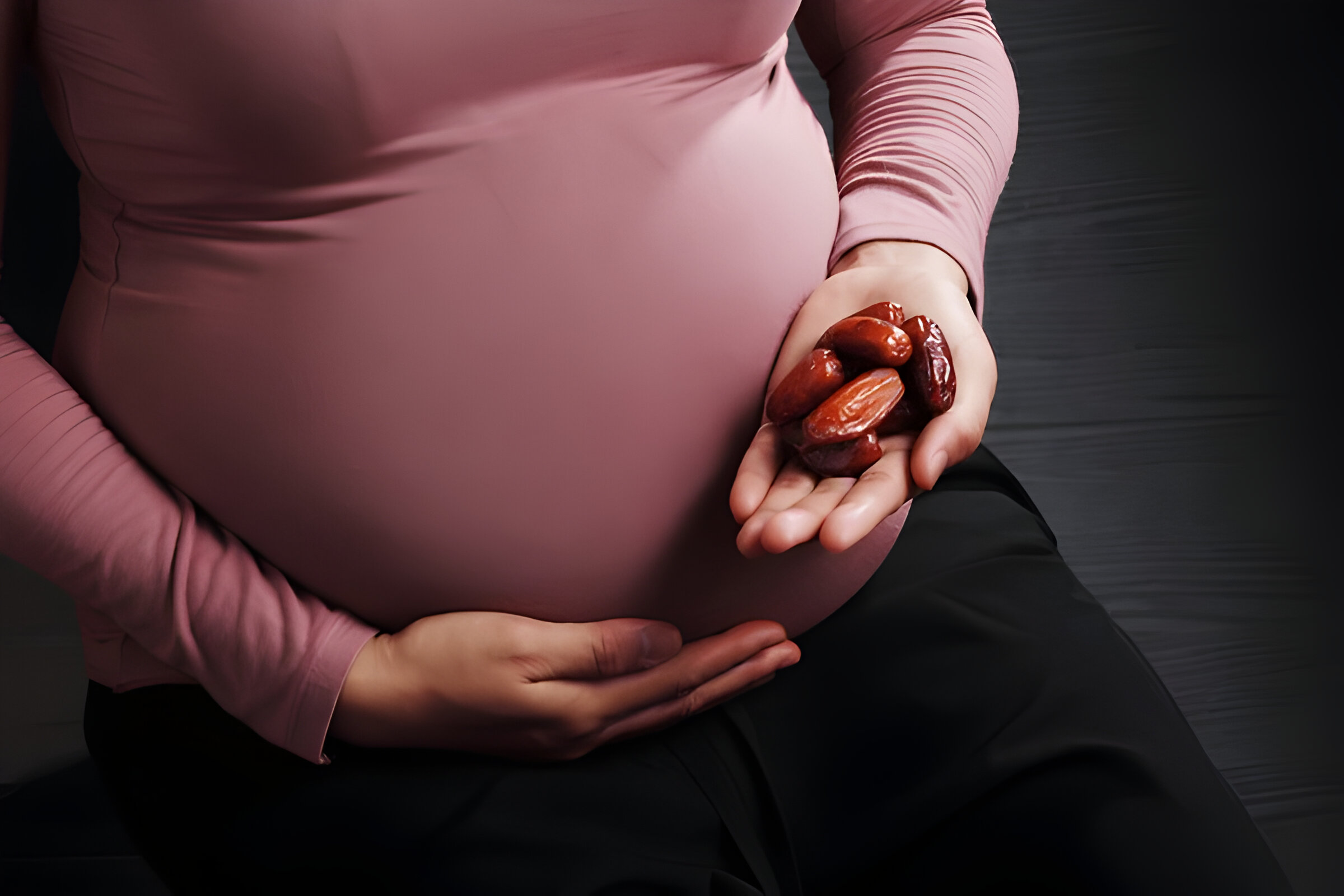Health Benefits of Eating Dates During Pregnancy: Boosting Wellness & Labor
Pregnancy is a beautiful journey filled with anticipation and excitement, but it also requires careful attention to nutrition. One superfood that is gaining popularity among expectant mothers is dates. Not only are they delicious, but dates can help provide essential nutrients that support a healthy pregnancy. This article explores the health benefits of eating dates during pregnancy, how they can positively influence labor, and why you should consider incorporating them into your pregnancy diet.
Introduction to Dates in Pregnancy
Dates are sweet, chewy fruits that grow on palm trees and are often enjoyed in various forms. Rich in natural sugars, they are an excellent source of energy, making them a popular choice for those looking to maintain their strength during pregnancy. The health benefits of dates during pregnancy are numerous, as they contain essential vitamins and minerals that are vital for both the mother and the developing baby. By understanding what dates are and their nutritional profile, you can appreciate their role in a balanced pregnancy diet.
What Are Dates?
Dates are small, oval-shaped fruits that are harvested from the date palm tree, primarily found in the Middle East and North Africa. These fruits are known for their high nutritional value, as they are packed with dietary fiber, vitamins, and minerals. Dates contain significant amounts of potassium, magnesium, and iron, which are essential for a healthy pregnancy. Consuming dates, especially during late pregnancy, can lead to a variety of health benefits, making them an excellent addition to your daily diet.
Why Include Dates in Your Pregnancy Diet?
Including dates in your pregnancy diet can yield numerous benefits. Research suggests that eating dates during pregnancy may help in reducing labor time and allow for a more manageable birthing process. In fact, many health experts recommend that women start eating dates in the weeks leading up to their due date, as they are believed to induce labor naturally. Furthermore, the benefits of dates with milk can enhance their nutritional profile, providing additional calcium and protein that support both maternal and fetal health.
Safe to Eat Dates During Pregnancy
One of the most frequently asked questions is whether it is safe to eat dates during pregnancy. The good news is that dates are entirely safe to consume when enjoyed in moderation. As with any food, it is important to eat dates a day for 4 or 5 days a week, ensuring you are not overindulging. Dry dates, in particular, are a concentrated source of energy and nutrients. They can help manage cravings and provide the stamina needed during this significant time, making them a smart choice for expectant mothers.
Health Benefits of Eating Dates
8 Benefits of Dates During Pregnancy
Eating dates during pregnancy can provide numerous health benefits for both the mother and the developing baby. First and foremost, dates are high in natural sugars, which can help maintain energy levels, especially during late pregnancy when fatigue is common. Additionally, dates contain dietary fiber that aids in digestion, preventing constipation—a common issue for many expectant mothers. Other benefits of eating dates include their rich supply of potassium and magnesium, which are essential for muscle function and blood pressure regulation, contributing to a healthy pregnancy. Furthermore, dates may help in reducing the risk of anemia, ensuring that both mother and baby receive adequate nutrients.
Dates Help in Labor
Many expectant mothers are interested in how dates can help induce labor naturally. Consuming dates in late pregnancy has been shown to promote cervical dilation and reduce the need for medical interventions during labor. Research suggests that women who eat dates regularly during their last few weeks of pregnancy experience shorter labor durations and fewer complications. The natural sugars in dates provide energy, while their fiber content supports digestive health, making it easier for mothers to cope with the physical demands of labor. Therefore, incorporating dates into your pregnancy diet can be a proactive approach to preparing for a smoother birthing experience.
Health Benefits of Eating Dates with Milk
The combination of dates with milk during pregnancy is particularly beneficial. Dates with milk not only enhance the nutritional value of your meals but also provide a delicious way to increase calcium and protein intake. The benefits of dates with milk at night can promote better sleep and relaxation, which are crucial for expectant mothers. This combination also aids in bone development for the baby and helps maintain the mother’s energy levels. Integrating dates and milk into your diet can significantly enrich your pregnancy journey, making it not only healthier but also more enjoyable.
How Dates Induce Labor
Understanding the Role of Dates in Labor Induction
Understanding how dates induce labor can empower expectant mothers to make informed dietary choices. Dates contain natural compounds such as flavonoids and tannins, which are believed to support uterine contractions and facilitate the body’s readiness for labor. By consuming dates regularly in the weeks leading up to delivery, many women find that they experience more efficient contractions during the first stage of labor. The science behind this phenomenon is still being researched, but the historical use of dates in traditional medicine suggests they play a significant role in preparing the body for childbirth.
Facts About Dates and Labor
There are several facts about dates and labor that every pregnant woman should know. Studies indicate that women who consume dates a day for 4 to 6 weeks before their due date are less likely to require induction compared to those who do not include dates in their diet. Furthermore, the sweet, chewy fruits are not only tasty but also rich in nutrients that help sustain energy levels during labor. Dates induce labor by promoting the production of oxytocin, a hormone that stimulates uterine contractions. Therefore, incorporating dates into your pregnancy diet could be a game-changer for those looking to have a more natural labor experience.
How Many Dates Should You Eat?
When considering how many dates to eat, moderation is key. Health experts recommend that pregnant women start eating dates in late pregnancy, ideally consuming around 6 dates a day. This amount allows for the optimal balance of nutrients without overindulging. Each date is packed with health benefits, making them an excellent choice for snacking or as a natural sweetener in various dishes. By integrating this quantity into your daily pregnancy diet, you can take advantage of the numerous benefits of dates while ensuring a healthy and balanced approach to nutrition during this pivotal time.
Incorporating Dates into Your Diet
Smoothies
One of the easiest ways to enjoy dates and milk is in a smoothie. Simply blend a handful of dates with a glass of milk and add your favorite fruits for extra flavor and nutrients. This makes for a delicious and refreshing drink that you can enjoy at any time of the day.
Overnight Oats
Overnight oats are a convenient and healthy breakfast option. Add chopped dates and milk to your oats, along with a sprinkle of nuts and seeds, and let it sit in the fridge overnight. By morning, you’ll have a nutritious and ready-to-eat meal that supports both mother and baby.
Warm Milk with Dates
For a comforting nighttime treat, heat a glass of milk and stir in a few chopped dates. The warmth of the milk will help release the sweetness of the dates, creating a soothing drink that can help you unwind and prepare for a good night’s sleep.
Best Ways to Eat Dates During Pregnancy
Incorporating dates into your pregnancy diet can be both enjoyable and beneficial. One of the best ways to eat dates during pregnancy is to snack on them raw, allowing you to enjoy their natural sweetness and chewy texture. You may also consider adding chopped dates to oatmeal or yogurt for a nutritious breakfast or snack. Moreover, dates can be blended into smoothies for a delicious, energy-boosting drink. Another option is to create energy balls by mixing dates with nuts and seeds, which makes for a convenient on-the-go snack. By diversifying how you eat dates, you can reap the many benefits of eating dates while keeping your meals interesting.
Recipes for Dates with Milk at Night
For expectant mothers looking to enhance their nutrition, recipes for dates with milk at night can be particularly rewarding. One simple recipe involves soaking a few dates in warm milk, allowing them to soften and release their natural sweetness. This delightful treat can be enjoyed as a bedtime snack, promoting relaxation and aiding sleep. Another option is to blend dates with milk to create a creamy smoothie, which can be fortified with a scoop of protein powder or a sprinkle of cinnamon for added flavor. Such recipes not only provide the benefits of dates with milk but also ensure you get the calcium and protein necessary for a healthy pregnancy.
Combining Dates with Other Healthy Fruits
Combining dates with other healthy fruits can amplify the health benefits of your snacks and meals. For instance, pairing dates with bananas or apples can create a delicious fruit salad that is rich in nutrients and fiber. You can also add dates to a fruit smoothie alongside berries and spinach, which can further enhance the nutritional profile while providing a burst of flavor. The versatility of dates allows them to complement a variety of fruits, making it easy to consume dates during pregnancy while enjoying diverse tastes and health benefits. This combination can satisfy your sweet cravings while offering essential vitamins and minerals to support a healthy pregnancy.
What precautions should be taken when eating dates during pregnancy?
While dates are generally safe to eat during pregnancy, certain precautions should be taken. It is essential to consume dates in moderation, as they are high in natural sugars, which can lead to excessive calorie intake if overindulged. Pregnant women should aim to eat dates a day for 4 to 6 days a week, ensuring a balanced approach to their diet. Additionally, it’s crucial to choose fresh or properly stored dried dates to avoid contamination. If you have gestational diabetes or other health concerns, consult with a healthcare professional before significantly increasing your intake of dates. By being mindful of these precautions, you can safely enjoy the numerous benefits of dates during pregnancy while maintaining overall health and wellness.
Side Effects Of Eating Too Many Dates During Pregnancy
While dates are an excellent addition to a pregnancy diet, it is essential to be aware of the potential side effects of eating too many dates during pregnancy. Dates are high in natural sugars, and overconsumption can lead to excessive calorie intake, which may contribute to unwanted weight gain. Additionally, some women may experience digestive issues if they consume dates in large quantities, leading to bloating or diarrhea due to their high fiber content. Pregnant women should aim to eat dates a day for 4 to 6 days a week, ensuring they enjoy the health benefits without overwhelming their digestive systems. Moderation is key to safely incorporating dates into your diet during this critical time.
Addressing Common Misconceptions and Concerns
Sugar Content
One common concern about dates is their high sugar content. While it’s true that dates are high in natural sugars, they also come with a wealth of nutrients and fiber that help regulate blood sugar levels. Consumed in moderation, dates can be a healthy part of a balanced diet.
Lactose Intolerance
Some pregnant women may be lactose intolerant, making milk consumption challenging. However, there are plenty of lactose-free and plant-based milk alternatives available that still provide essential nutrients. Almond milk, for example, is a great source of calcium and pairs well with dates.
Allergies
Although allergies to dates and milk are rare, they can occur. If you have a known allergy, consult with your healthcare provider before incorporating this combination into your diet. Always listen to your body and make adjustments as needed.
Dates for Labor: When to Start Eating Dates in Pregnancy
When considering when to start eating dates in pregnancy, experts recommend incorporating them into your diet during late pregnancy, particularly in the final four to six weeks leading up to your due date. Consuming dates regularly during this period may help prepare your body for labor as they are believed to induce labor naturally. Research suggests that dates can help promote cervical dilation and increase the efficiency of contractions during the first stage of labor. By beginning to consume dates, ideally around 36 weeks, expectant mothers may benefit from a smoother labor experience. Therefore, including dates in your pregnancy diet can be a proactive step toward enhancing labor readiness.
Side effects of dates in pregnancy first trimester
During the first trimester of pregnancy, dates are also a popular choice among expectant mothers due to their numerous nutritional benefits. Dates are rich in essential vitamins and minerals, providing energy and supporting overall health. Eating dates may help alleviate constipation, a common issue during pregnancy, thanks to their high fiber content. However, it’s important to approach consumption of dates with moderation. While dates can provide valuable nutrients, an excessive intake could lead to unwanted spikes in blood sugar levels, especially for those who didn’t eat any dates before pregnancy. A balanced diet with a handful of dates each day can be beneficial, but it is advisable to consult with a healthcare provider to determine the right amount.
For those looking to enhance their intake, consume dates with milk for added calcium and protein. Generally, eating dates can help improve overall energy levels, making it easier to cope with the fatigue that often accompanies early pregnancy. Many women choose to start eating dates during pregnancy to prepare their bodies for labor, as eating dates may help make the delivery date smoother by strengthening uterine contractions. If you enjoy dried fruits during pregnancy, dates are an excellent source of natural sweetness and can be incorporated into various dishes. A common recommendation is to eat six dates a day in the later stages of pregnancy, but moderation is key in the first trimester to avoid any potential side effects.
When to start eating dates in pregnancy
During pregnancy, it is often recommended to start consuming a handful of dates around the 36th week. Dates are full of essential nutrients and have numerous health benefits, making them a great addition to a pregnant woman’s diet. Long believed that dates assist in preparing the body for labor, they can aid in achieving a shorter first stage of labor and making labor easier. Research has shown that women who ate 6 dates a day during the last few weeks of pregnancy experienced higher rates of spontaneous labor compared to those who did not. Different varieties of dates offer unique flavors and benefits, so it is beneficial to ask for low-glycemic dates if you are concerned about blood sugar levels. Overall, consuming dates while pregnant can be a delicious way to enhance your diet and support a healthy labor process.
Incorporating dates during and after pregnancy can also provide lasting health benefits. Consuming dates not only supports labor but also helps in recovery postpartum. As a nutritious snack, dates are a great source of energy and can be included in various foods before and during pregnancy. Their natural sweetness makes them a preferable alternative to refined sugars, and they can easily be added to smoothies, oatmeal, or eaten on their own. By starting to eat dates a day starting from the 36th week, expectant mothers can take advantage of the many benefits of consuming dates to facilitate a smoother birth experience.
How many dates to eat during pregnancy
Dates are also a nutritious option for pregnant women, providing several benefits of consuming them. Research suggests that starting to eat six dates a day during the last few weeks of pregnancy can be advantageous. These varieties of dates are rich in essential nutrients, making them an excellent source of energy and fiber. The nutritional benefits of dates include high levels of natural sugars, which are vital for both the mother and developing baby.
Additionally, eating dates may help in making delivery date smoother. A handful of dates can be consumed daily, preferably with milk, to enhance their effects. Many women who didn’t eat any dates during pregnancy reported longer labor times. In contrast, those who included dates in their diet found the consumption of dates made labor easier and more manageable. Overall, dates can provide a wealth of nutritional benefits for those looking to incorporate dried fruits during pregnancy.
Conclusion
Final Thoughts on Eating Dates During Pregnancy
In conclusion, eating dates during pregnancy can provide numerous health benefits for both the mother and the developing baby. From aiding digestion to potentially inducing labor, dates are a versatile and nutritious food that can enhance your pregnancy diet. However, it is crucial to consume dates in moderation to avoid excessive sugar intake and digestive discomfort. By understanding the benefits of eating dates and integrating them into your daily routine, expectant mothers can support a healthy pregnancy while enjoying the delightful taste of these fruits.
Encouraging Healthy Choices for Expecting Mothers
Encouraging healthy choices for expecting mothers is vital for both maternal and fetal well-being. Incorporating nutrient-dense foods like dates into your pregnancy diet can significantly enhance overall health. Sharing information about the benefits of dates, such as their ability to provide energy and promote healthy digestion, can empower expectant mothers to make informed dietary decisions. Additionally, discussing the importance of balancing dates with other healthy foods can lead to better nutritional practices. By fostering an environment of support and education, we can help expecting mothers embrace healthier lifestyles during this transformative stage of life.
Start Eating Dates for a Healthier Pregnancy
Start eating dates for a healthier pregnancy by incorporating them into your daily meals and snacks. Whether you choose to enjoy them raw, mix them with milk, or add them to smoothies, the versatility of dates makes them an easy addition to your diet. Consider keeping a stash of dates on hand for quick energy boosts throughout the day. As you approach late pregnancy, aim to consume dates a day to help prepare your body for labor. By making this simple dietary change, you can take advantage of the numerous benefits of dates while supporting your health and wellness during this significant time.






